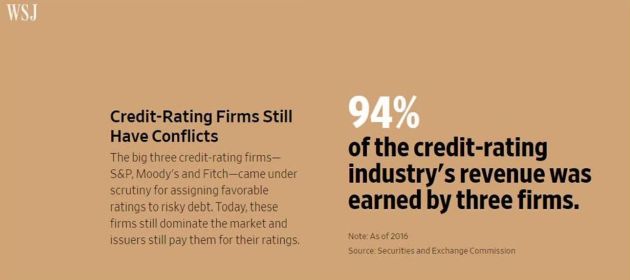Here’s another post on the cultural differences across different markets, with specific lessons for sales and marketing.
Many years ago, Fortune had used the following lede to introduce the largest company on its prestigious list of 500 largest corporations in the world:
Walmart is the #1 company on the GLOBAL FORTUNE 500. As the largest company in the world, Walmart is BIG. So big that if the pilferage from Walmart were incorporated into a separate company, that company would rank 276 on the FORTUNE 500 list.
If pilferage from Walmart can be so big, so will everything else about the world’s largest company?
Yep.
So I was not too surprised to read the following headline on Walmart’s international business in a recent issue of Fortune:
EVERYTHING AT WALMART IS SUPERSIZED
 The magazine’s cover story profiles Judith McKenna, President & CEO of Walmart International, and the Walmart executive who led the recent acquisition of Flipkart. At one point, she was the Chief Operating Officer-cum-Chief Financial Officer of Asda Stores, a Walmart subsidiary in UK. She later moved to the world’s largest company’s headquarters in Bentonville, Arkansas as head of strategy and development.
The magazine’s cover story profiles Judith McKenna, President & CEO of Walmart International, and the Walmart executive who led the recent acquisition of Flipkart. At one point, she was the Chief Operating Officer-cum-Chief Financial Officer of Asda Stores, a Walmart subsidiary in UK. She later moved to the world’s largest company’s headquarters in Bentonville, Arkansas as head of strategy and development.
In her early days in the US, the burning problem in Walmart USA was the constant fall in same-store sales, which is a critical metric in retail. McKenna visited stores in all US states to speak to frontline staff. They told her there was too much inventory. That they lacked equipment to clean the floors. Any many other things that McKenna termed TNTs – tiny noticeable things.
TNT – Tiny Noticeable Thing.
 TNTs are those typos on a website, grammatical errors in a brochure, tardiness in joining customer meetings, not responding to an inquiry, delay in submitting a proposal, the button that works only when tapped twice, and so on. (If you want to know McKenna’s response to her store staff, click here to read the article. Spoiler Alert: Propane buffers came back to Walmart stores.).
TNTs are those typos on a website, grammatical errors in a brochure, tardiness in joining customer meetings, not responding to an inquiry, delay in submitting a proposal, the button that works only when tapped twice, and so on. (If you want to know McKenna’s response to her store staff, click here to read the article. Spoiler Alert: Propane buffers came back to Walmart stores.).
In some markets, tiny noticeable things are harmless things that you can get away with. But, in others, they can be as explosive as TNT that will blow your company out of the water.
At the risk of painting with broad brushstrokes, TNT is harmless in India and many Oriental markets, explosive in Romanic markets like Germany, and nuanced in Anglo-Saxon markets like USA and UK.
I tend to believe which is which is determined by a market’s business ethos towards work.
At the highest level, working style is shaped by one of the following two diametrically opposite principles:
Principle A: Whatever you do, do well.
Principle B: Not everything worth doing is worth doing well.
I heard about the first principle in my childhood from the lines of a poem written by the famous Tamil poetess Avvaiyaar centuries ago. I’ve subsequently seen the likeness of the same principle in English in the following quote attributed to Philip Stanhope:
The second principle was popularized in Tracy Kidder’s classic The Soul of a New Machine, which chronicles the experiences of a Data General computer engineering team racing to design a next-generation computer in 1980 called DG Eclipse MV/8000.
Nothing right, nothing wrong but, in my experience, the first principle was popular back in the days when efficiency reigned supreme and the guiding credo was “get it right first time” in order to avoid rework; whereas the second principle is de rigueur in today’s world of innovation that places emphasis on iterative development and the “move fast and break everything” credo in order to move fast.
Going by my personal experience and anecdotal evidence:
- In India, when prospects encounter a typo or any other tiny noticeable thing, they shrug it off as a minor thing and assume the vendor will pay more more attention to the bigger things that come later.
- In Germany, in a similar situation, the prospect wonders, if the vendor can’t even get small things right, how can they be trusted to get the big things right, and tend to drop the vendor from their shortlist.
- In USA and UK, typos may be ignored but an unkempt salesperson will not. As the late Mark H. McCormack, former Vice President of Sales at IBM, warned in his bestseller What They Don’t Teach You At Harvard Business School, “When a salesperson dresses well, the prospect pays attention to the salesperson. When the salesperson dresses shabbily, the prospect pays attention to the dress (and ignores what the salesperson says).”
Old Russian Proverb: "When you meet a man, you judge him by his clothes. When you leave a man, you judge him by his heart".
— GTM360 (@GTM360) December 13, 2018
Ideally, vendors should eschew typos, grammatical errors and all forms of TNTs in all markets.
But that seems to be impossible, judging by the profusion of sloppy text and other examples of TNTs that we regular see everywhere.
In that case, sales and marketing leaders should at least take the trouble to assess whether a certain market leans towards Principle A or Principle B and take extra care to banish TNTs in those markets where work style is ruled by Principle A.
UPDATE-1: TYPOS & FORMATTING ERRORS
At the risk of going off on a tangent from company to the individual, let me take the following comment on Quora:
Hello sir….i need some guidelines as i have faced fraud on my credit card and rbl bank is simply stating it otp based so customer is liable to pay….i hve only received fromal call of 2 mints from investigating dept of rbl. I have filed again complaint for to the customer care stating i m not satisfied
I’m sure you don’t need me to highlight the number of typos and formatting errors in this missive for help.
My $0.02:
People should avoid all typos and formatting errors, especially in requests for help (not to mention sales emails and marketing collaterals).
Many readers won’t bother to help even if they can because they believe that, if the help-seeker can’t even make the small effort to avoid typos and formatting errors, then s/he won’t be able to make the larger effort required to follow their advice, so why waste time giving it.
There’s also the common belief among a lot of people that “as long as people understand what I’m saying, how does it matter whether I make typos and / or formatting errors?”
The problem with this line of thinking is that, while they might manage to convey what they want to convey despite their sloppy work, they will also unwittingly signal that they’re irresponsible, unreliable, not worth dealing with, and many other things that they surely did not want to convey.


